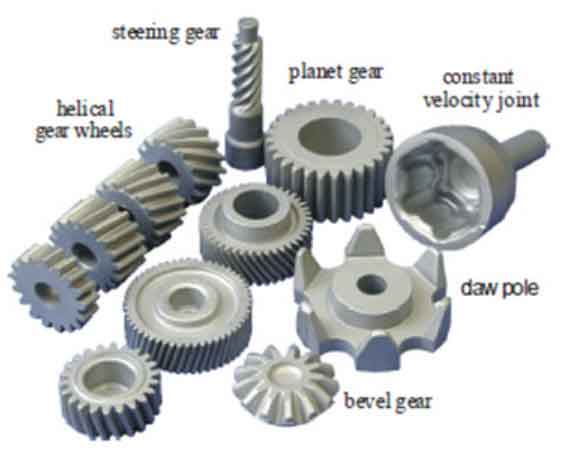Precision forging is an advanced manufacturing process that combines traditional forging techniques with modern technology to produce high-quality components with exceptional precision and efficiency. It has emerged as a leading method in component manufacturing, offering numerous advantages over conventional forging processes.

The precision forging process starts with a carefully designed die that shapes the material into the desired component geometry. The die is typically made from steel and is customized for each specific part. The workpiece, usually a metal alloy, is heated to a specific temperature to enhance its malleability without compromising its structural integrity.
Once the workpiece reaches the appropriate temperature, it is placed into the die and subjected to extreme pressure. This pressure is applied using a mechanical or hydraulic press, forcing the material to conform to the shape of the die. The high pressure ensures excellent material density and reduces the need for subsequent machining, resulting in a near-net shape component.
Precision forging offers several key advantages compared to other manufacturing processes:
- Enhanced Material Strength: The controlled deformation during precision forging aligns the grain structure of the metal, resulting in improved mechanical properties such as higher tensile strength, better fatigue resistance, and increased durability of the final component.
- Improved Dimensional Accuracy: Precision forging allows for tight tolerances and intricate geometries, ensuring that the final product meets the exact specifications. This reduces the need for additional machining or finishing operations, saving time and costs.
- Cost Efficiency: Precision forging significantly reduces material waste and machining requirements compared to conventional manufacturing processes. The near-net shape components produced require minimal post-processing, reducing material costs and machining time.
- Production Efficiency: Precision forging can produce components at high volumes with rapid production cycles. The process is automated and highly repeatable, resulting in consistent quality and reduced lead times.
- Design Flexibility: The precision forging process enables the production of complex shapes and geometries that may be challenging or even impossible to achieve with other manufacturing methods. This flexibility opens up new possibilities for component designers and engineers.
- Material Variety: Precision forging can be applied to a wide range of metals and alloys, including steel, aluminum, titanium, and nickel-based superalloys. This versatility allows manufacturers to choose the most suitable material for specific applications, balancing strength, weight, and other factors.
Precision forging has found applications in various industries, including automotive, aerospace, defense, and medical. It is commonly used to manufacture critical components such as connecting rods, gears, shafts, valves, and turbine blades.
Precision forging combines the strengths of traditional forging techniques with modern technology, enabling the production of high-quality components with exceptional precision and efficiency. By optimizing material usage, reducing machining requirements, and offering design flexibility, precision forging has redefined efficiency and quality in component manufacturing.
